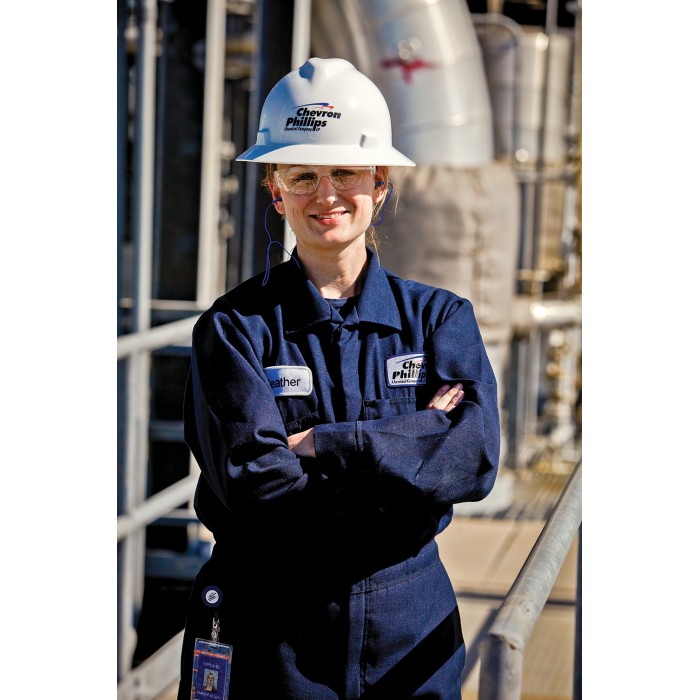Advertisement
Grab your lab coat. Let's get started
Welcome!
Welcome!
Create an account below to get 6 C&EN articles per month, receive newsletters and more - all free.
It seems this is your first time logging in online. Please enter the following information to continue.
As an ACS member you automatically get access to this site. All we need is few more details to create your reading experience.
Not you? Sign in with a different account.
Not you? Sign in with a different account.
ERROR 1
ERROR 1
ERROR 2
ERROR 2
ERROR 2
ERROR 2
ERROR 2
Password and Confirm password must match.
If you have an ACS member number, please enter it here so we can link this account to your membership. (optional)
ERROR 2
ACS values your privacy. By submitting your information, you are gaining access to C&EN and subscribing to our weekly newsletter. We use the information you provide to make your reading experience better, and we will never sell your data to third party members.
Employment
A question on ethics
by Bibiana Campos Seijo
July 16, 2018
| A version of this story appeared in
Volume 96, Issue 29
Here’s a question for C&EN readers: Would you fabricate a job offer so you could negotiate a promotion or pay increase at work? Have you done it yourself or know of someone who has and got away with it? To be clear, I’m not considering doing this myself. I’m simply asking for a friend …
Of course, I’m joking. But this is the question that came to my mind as I read the news reported by CBS Denver that a—now former—professor of biochemistry at Colorado State University fabricated an outside job offer to improve his status at his university.
It appears that Brian McNaughton—who ran a biochemistry research group at CSU—was charged for falsifying a job offer from the University of Minnesota and now faces felony charges for fabricating the offer and attempting to influence a public official with the goal of improving his status at CSU. McNaughton, 40, alleged financial and marital problems as the reasons for the lie and admitted that he got the idea from colleagues, who suggested that former faculty had lied about outside offers “as a mechanism to improve their salary,” McNaughton wrote in a letter to the dean of CSU’s College of Natural Sciences, according to the Chronicle of Higher Education.
How desperate was he? It’s difficult to put ourselves in his shoes and decide that a pay increase is worth risking a potentially flourishing career and years of education and dedication to a discipline. The pay increase he ended up receiving was roughly $4,000 per year, according to CBS Denver. Was it worth it? I don’t think so. McNaughton has since resigned his position and apologized for the mistake he made. He returned the total amount of the raise, which was about $4,000 per year over four years, as the lie managed to go unnoticed for almost that long.
But going back to my original question: How often do people lie or exaggerate to appear more desirable in the job market than they really are? McNaughton took it to the extreme, even creating false documentation. But I wonder how often people will suggest another—imaginary—offer to indicate they are a flight risk and renegotiate their employment conditions.
In my view, if an employee is performing a job and is good at it, that person should be compensated for it accordingly and in line with individuals within the same organization at an equivalent level professionally (ideally pay should be benchmarked against similar-sized institutions in states or parts of the country with comparable income ranges). Does a job offer and the suggestion that the employee is desirable to another organization change how well that person is performing? Promotions and rewards should be directly related to performance and an individual’s contribution to the organization and to science.
In other news, I read that the University of Huddersfield in the U.K. is going to open a “super lab” geared toward pre-university science teaching. This development is part of a bigger remodeling project that will culminate with the opening of its new science building in the summer of 2019. The reason this news caught my eye is that the equipment within this “super lab” will be available to schools within a 60-mile (about 96-km) radius of Huddersfield, providing pre-university students in the area with access to instrumentation that schools are generally unable to provide so that students can carry out more advanced practical work. Exposing sharp young minds to well-outfitted facilities early will help attract and retain students in the sciences. I imagine the university will benefit directly from this as well as from investment from the authorities to make this kind of arrangement possible. At a minimum, there will be savings from not having to maintain poorly equipped or poorly resourced labs at schools nearby. It’s an interesting approach that we may soon see replicated elsewhere.
Advertisement
Students will definitely benefit.
Views expressed on this page are those of the author and not necessarily those of ACS.



Join the conversation
Contact the reporter
Submit a Letter to the Editor for publication
Engage with us on Twitter